This Thanksgiving post is for everyone — the entire community at The Cottage and all your friends and family! Please share freely by forwarding or using the “Share” button.
It is Thanksgiving in the United States, a time to reflect on the gifts that surround us and offer thanks. I love this holiday — and the national practice of dedicating one day a year to gratitude.
My favorite Thanksgiving memory comes from the mid-1980s, when I was still in my twenties. I was just married (the first time - it didn’t go well!) and we lived in New England, just north of Boston, where Thanksgiving is a very big deal. Indeed, our church held special services on Thanksgiving morning. My then-spouse was theologically Reformed and revered the Puritans. He loved Thanksgiving even more than I did and wouldn’t miss that worship service for anything.
On this particular Thanksgiving, however, we woke to discover that six inches of snow had fallen overnight. And it was still coming down.
Undeterred, and like generations of people who live in New England, we dug out the car and drove to church.
There were few cars on the road as we made our way even further north through small towns, farms, stands of trees, and by an icy lake. The snow, heavy and wet, covered everything — spacious commons, memorials to Union soldiers, clapboard houses, and old churches. The world was downy and white, quiet in monochrome austerity. It was if we had driven back into a woodcut of “over the river and through the woods.”
When we got to church, we discovered that we weren’t quite alone — even through the wind was stronger and snow falling harder than before. There were six hardy churchgoers who had braved the weather: us, another couple who were about to have their first child, the music minister, and the pastor.
No one had turned the heat up. It was nearly as cold inside and out. With our coats, scarves, and gloves still on, we four parishioners bundled as closely together as was possible in the first pew.
“Open your hymnals,” instructed the pastor as the musician played the first strains of the traditional song on the piano:
Now thank we all our God
with heart and hands and voices,
who wondrous things has done,
in whom his world rejoices;
who from our mothers' arms
has blessed us on our way
with countless gifts of love,
and still is ours today.
O may this bounteous God
through all our life be near us,
with ever joyful hearts
and blessed peace to cheer us,
to keep us in his grace,
and guide us when perplexed,
and free us from all ills
of this world in the next.
Six voices sang lustily, huddled in the church, as the winter storm swirled outside. We were like a small band of godly exiles, the sturdy and faithful, not unlike, well, the Pilgrims. I thought of the old picture that hung on the wall of my kindergarten class in the 1960s — the image of Thanksgiving seared into the minds of generations of Americans.
Thanksgiving indeed. As the service ended, and although I’d only ingested a wafer and wine on that cold morning, I felt sated. It was good to be the holy remnant in the howling wilderness.
* * * * *
This happened nearly forty years ago. The day is as clear as it can be in my mind, perhaps the most powerful and pleasant memory I have of my first marriage.
But, like that relationship, this memory has also failed. Not because the image has faded in my mind. It failed because it couldn’t sustain itself with its overly romanticized view of Puritan piety and its complete ignorance of real historical events. It was a wildly unrealistic understanding of the world in the face of what actually was and was to come.
It is hard to connect who I am now with the young woman then. My life is very different. The world is so very different. Everything is different. Nostalgia, however pleasant and evocative it may be, doesn’t cut it. One cannot live on memories, especially memories made from myths in the first place.
I’m not alone. Many Americans are struggling to connect Thanksgiving images of the past with the American present.
That’s a question I wrestled with in my book Grateful. When I wrote the section on Thanksgiving, I was thinking about that long-ago New England day. This morning’s memory is behind the selection below — a short passage from Grateful inviting us to reimagine Thanksgiving. The reading is followed by an updated version of the Thanksgiving prayer at the end of the book.
“Reimagining Thanksgiving,” adapted from Grateful.
Think of how we depict Thanksgiving — people around a table eating a meal. In the United States, it is the romanticized image of our most primal gratitude myth: Europeans and Indigenous people sharing around a table. Of course, it did not happen that way. But that is what myths are — stories that express something we desire, what we hope will be, and how we dream of happiness and peace.
I want to reclaim Thanksgiving as our major festival of gratefulness.
In the United States, Thanksgiving currently suffers from two major problems: it is relegated to the status of a private family celebration and it serves as the commercial kick-off for Christmas.
Other than providing us with a day off from work (a public holiday) and engendering a few civic proclamations (ignored by most), Thanksgiving has largely moved from the public sphere to the domestic one. Generally, we celebrate in intimate groups, typically family, in our own homes with our own feasts and watch games on our own televisions. Some of the privatization has emerged, no doubt, because of injustice associated with the holiday — the picture of happy Natives feeding grateful Pilgrims just does not square with the historical record. Nor do the nostalgic Norman Rockwell images of a family patriarch overseeing a happy nuclear family at a table fit with the experiences of most American families today.
Without a larger sense of story and not knowing how to move past the myths we once lived by, we retreat into our private spheres and make the best of a day off — and stuff ourselves with turkey.
With regard to the second problem, American Thanksgiving is lost in the consumerist rush to Christmas. Not so long ago, stores closed in a grateful pause that allowed shoppers and sellers to breathe before the December holiday. Now, however, you get a couple hours to gobble down the meal with the relatives before you rush out for holiday discounts. Huge crowds gather not to play, but to be the first in line at Walmart. This is not the ecstasy of gratitude — it is the agony of scarcity. Instead of giving thanks for abundance, we push to the front of the queue to make sure we get ours before anyone else beats us to it. Consumer Thanksgiving is more a zero-sum game than a celebration of bounty.
But Thanksgiving is still there, no matter how ignored, privatized, or corrupted it may be. There are parades (which need not be commercials for Christmas), feasts (some of which are provided by service groups and religious communities), and sports. If the surveys are right — that 80 percent of us experience gratitude on a regular basis — why not celebrate gratitude itself? Gratitude, evidently, is something we share. We might even give thanks for the binding power of thanks!
Thanksgiving serves to remind us of what we can celebrate together: food, the bounty of the earth, the gifts of life and work, the pleasure of relationships, the real unity of community, peace and interdependence, and a call to serve others as we have been served.
Thanksgiving invites us to turn bad history on its head and banish nostalgia with its corrupted myths. What do we desire, what do we hope will be, and how will we dream of happiness and peace?
We can start by celebrating the abundance of a beautiful and bountiful land, a land with enough for all, with its vast geographies layered with the histories, cultures, and hard work of the diverse peoples who have inhabited this place. It can be a day marking humility, forgiveness, and appreciation.
We can come together around the Thanksgiving table, making sure there are enough chairs for all to be seated and sated.
These things are worth celebrating.
Let’s reimagine Thanksgiving for the future.
A Thanksgiving Prayer
by Diana Butler Bass, adapted from Grateful (2023 version)
GOD, there are many days we do not feel grateful. When we are anxious or angry. When we feel alone. When we do not understand what is happening in the world or with our neighbors. When the news is bleak and confusing. When there are threats, injustice, violence, and war.
We struggle to feel grateful.
But this Thanksgiving, we choose gratitude.
We choose to accept life as a gift from you, and as a gift from the unfolding work of all creation.
We choose to be grateful for the earth from which our food comes; for the water that gives life; and for the air we all breathe.
We choose to thank our ancestors, those who came before us, for their stories and struggles; we receive their wisdom as a continuing gift for today.
We choose to see our families and friends with new eyes, accepting them for who they are. We are thankful for our homes, whether humble or grand.
We choose to appreciate and care for our neighbors whatever our differences or how much we feel hurt or misunderstood by them.
We choose to see the world as our shared commons, our home now and the legacy we will leave to the generations to come.
God, this Thanksgiving, we do not give thanks. We choose it.
We will make this choice of thanks with courageous hearts, knowing that it is humbling to say “thank you.” We choose to open ourselves to your sacred generosity, aware that we live in an unending circle of gratitude. We all are guests at your hospitable table around which gifts are passed and received.
We will not let anything opposed to love take over this table. Instead, we embrace grace, unconditional love, the giftedness of life everywhere. In this choosing, and in the making of this meal, we will pass gratitude onto the world.
Thus, with you, with all those gathered at this table, and with those at tables far distant, we pledge to make thanks. We ask you to strengthen us in this resolve. Here, now, and into the future. Around our family table. Around the table of our nation. Around the table of the earth.
We choose thanks.
Amen.
Gratitude is not about stuff.
Gratitude is the emotional response to the surprise of our very existence,
to sensing that inner light and realizing the astonishing sacred, social, and scientific events that brought each one of us into being. We cry out like the psalmist,
“I am fearfully and wonderfully made!” (Ps. 139:14)
Life itself is the gift.
― Grateful



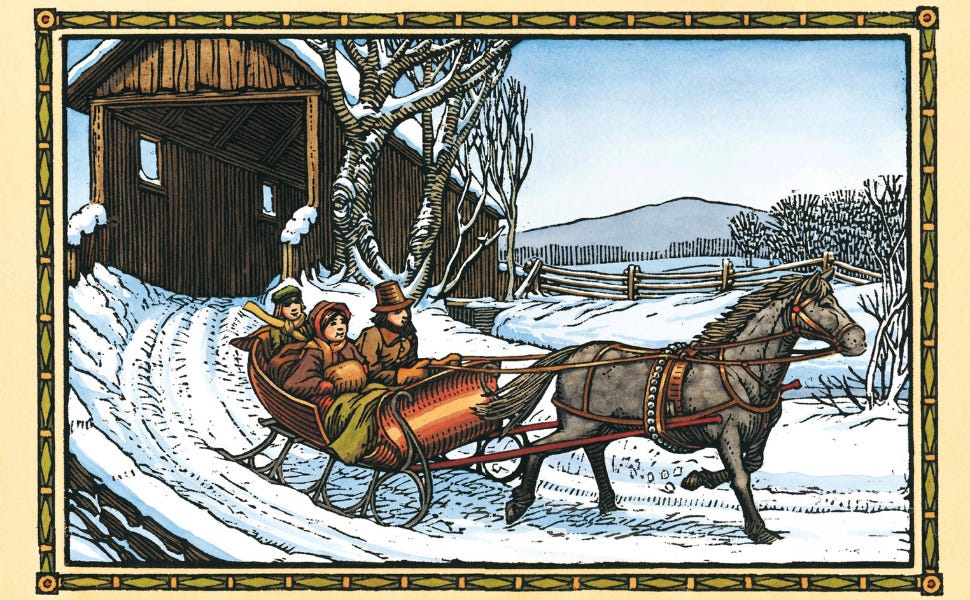
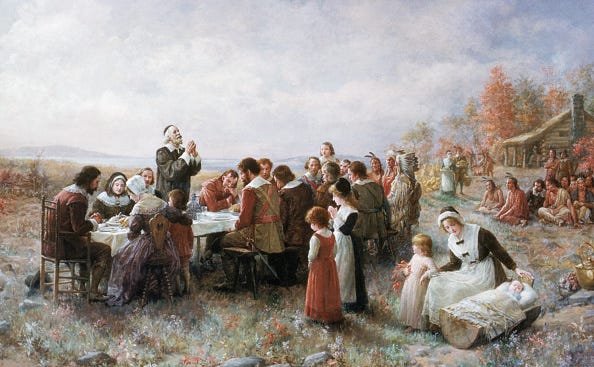
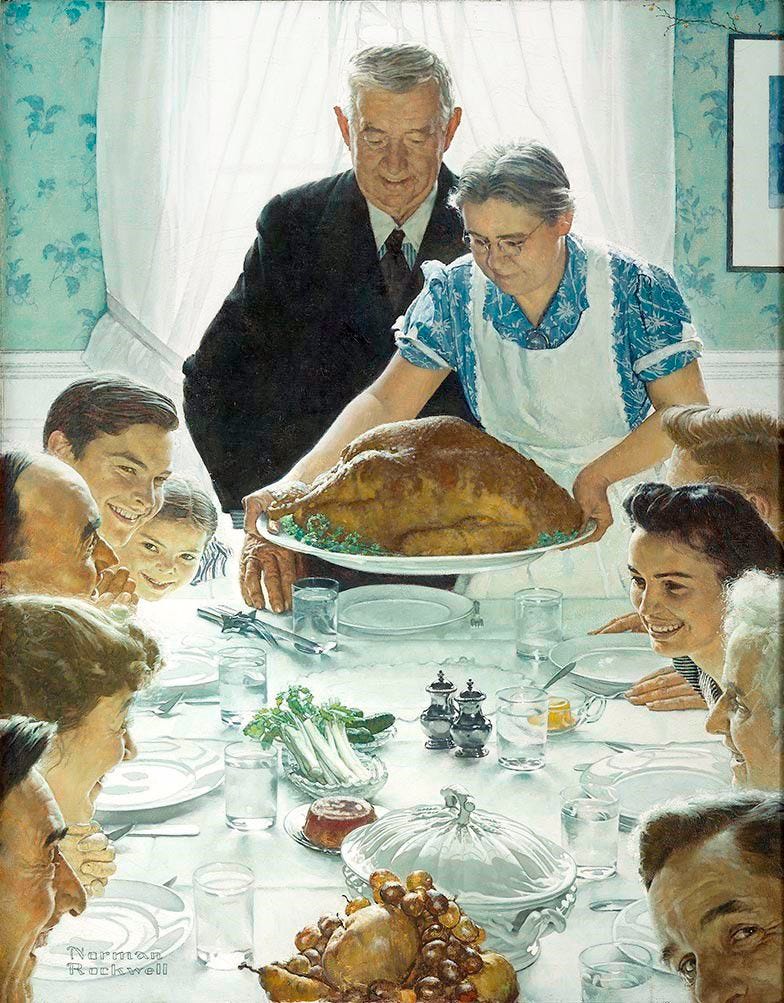
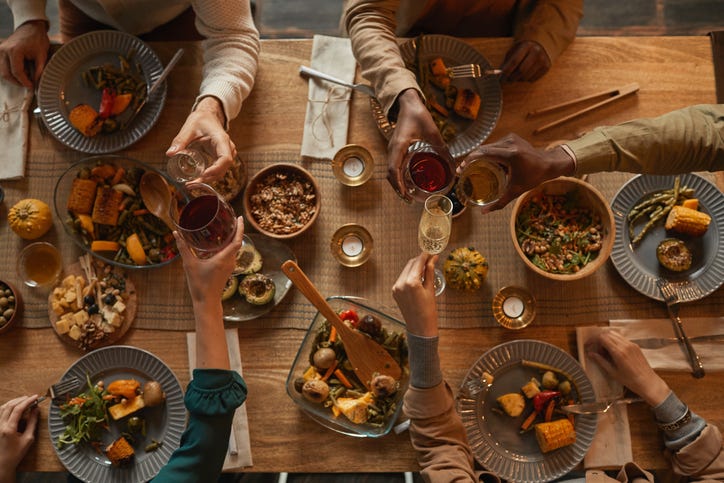
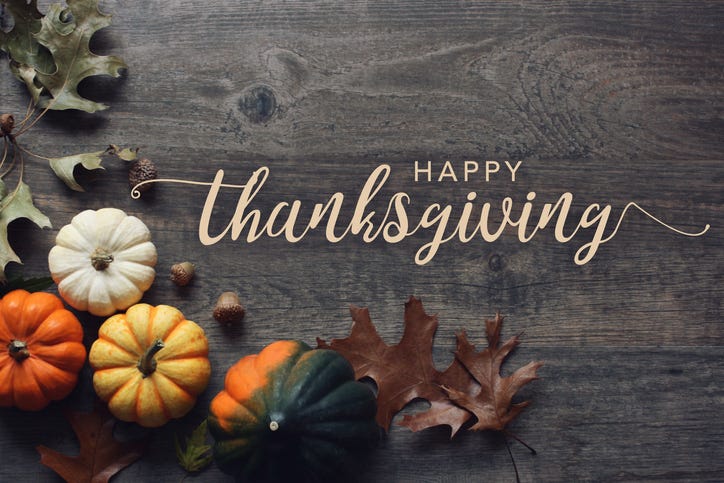
I shared the last half of your gratitude prayer at Thanksgiving dinner with my son and his family and several times thereafter. You said it much better than I could have. Imitation is the most sincere form of flattery. I hope your Thanksgiving was one for the record books. God bless you!
Thank you Diana. I appreciate this reminder that gratitude is a choice. I tend to think of gratitude as a feeling that either I have or don't have, but thinking of it as a muscle that I choose to strengthen, or not, gives me a different way of thinking about it. I cannot tell you how much I appreciate your writing which is continually packed with wisdom, honesty, vulnerability, and a huge love for the world. I am so grateful that you continue to be my teacher, after all these years!